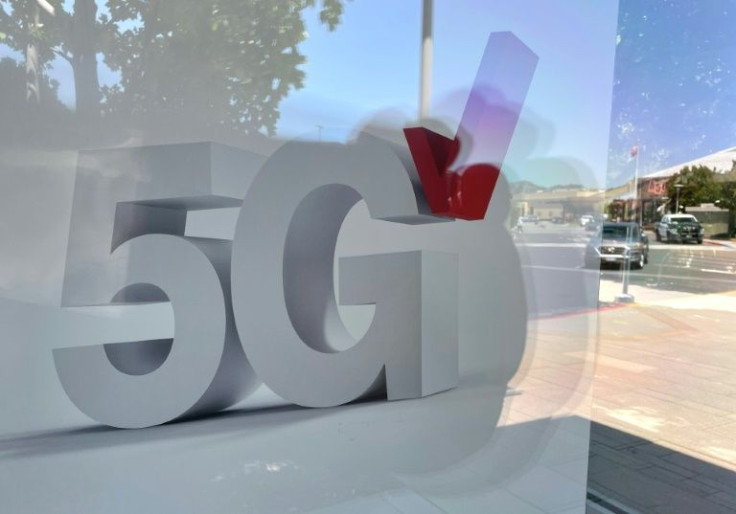In The Politics Of Technology, Other Nations Steal The Show From US

More than 40 nations have achieved success with Fifth Generation - 5G, the most essential tool of postmodern life, rollout.
The US power to lord over 5G was put to the test with the Jan. 19 rollout fiasco. In the politics of technology, the US failed to do its homework well.
5G is being touted as a major move towards the internet of things - a world in which refrigerators alert when we're short on milk, diapers tell when they need to be changed, and Netflix available everywhere, round the clock in an age of transhumanism.
5G has replaced the macrocells used in 4G networks as it is smaller in size and cheaper to deploy and 5G wireless cellular signals are transmitted through small cell towers or base stations placed in dense, urban settings.
Market research firm Gartner Group estimated that 5G network infrastructure revenue to grow 39 percent to total $19.1 billion in 2021, up from $13.7 billion in 2020. By 2027, 1.56 million private 5G small cells are expected to become operational.
5G was developed in South Korea in 2008 and Samsung created a 5G network in 2013. In 2019, Verizon introduced 5G in the U.S., which reduced latency, the delay in sending and receiving information, from 4G's 200 milliseconds to1 millisecond (1ms). Today, 5G is superseding 4G and 5G networks could deliver 10 times faster internet over 4G.
At stake is global technological, economic, and military dominance that comes with three million new jobs, $500 billion in GDP, and $275 billion in private sector investment.
With over 300 million consumers, the US is the world's tech and innovation hub and currently enjoys 4G global leadership. It is the world's strongest wireless economy and leader in mobile broadband which adds $100 billion to the GDP with a $950-billion app economy alone.
More than 25 state legislatures, including Michigan, Missouri, New York, South Carolina, and West Virginia; have given green signal to deploy 5G small cells, and 16 states started pushing for 5G and small cell-related legislation way back in 2020.
As a result of its leadership, the largest tech stocks from Google, Amazon, Microsoft, Facebook, and Twitter continue to drive the US economy. Apparently, the US expects to lord over the 5G market. But the Jan. 19 rollout at US airports played the spoilsport.
Several international airlines canceled their flights to many US destinations over concerns about the rollout of 5G mobile communication technology.
After warnings about the potential problem by the state-funded Federal Aviation Administration (FAA), US telecom majors AT&T and Verizon delayed activating some 5G masts around US airports to generate C-band frequencies, a type of radio frequencies between 3.7 and 3.98 gigahertz (GHz) which are similar to those used by modern aircraft to measure altitude.
Due to the narrow gap between the frequencies of the 5G and the radio altimeters, used by pilots to land the plane safely, particularly when visibility is poor, the radio waves could cause interference. In short, passengers using 5G could inadvertently distort the altimeter's signal. The FAA debate was mainly on the altimeter and the frequency.
Other nations who jumped on to the 5G bandwagon did not face any technical snag. More than 40 countries have safely deployed 5G technology without disrupting aviation services. In the UK, for example, 5G goes up to 4GHz without any mountain around airports to reduce visibility.
The European Union has opted to operate its 5G on a frequency further away from aircraft altimeter. 5G goes up to 3.8GHz in the 27-member nation block.
France and Canada reduced the signal strength from the towers around airports and succeeded.
Both AT&T and Verizon were supposed to launch 5G services on C-band frequencies last year December. However, they voluntarily put it off after the airline industry raised concerns over potential interference at U.S. airspace, which the FAA called the most complex in the world.
Since Ameritech introduced the Motorola DynaTAC mobile phone - popularly known as The Brick - in March 1983 in the U.S, wireless technology has become so ubiquitous that most believe it is safe.
To be the undisputed leader in the next big thing in the global economy, the US has to come clean on the safety aspects of 5G.
This is a big deal in the midst of safety concerns that human eyes and sweat ducts can act as antennas for absorption of the higher-frequency 5G waves.
The Jan. 19 fiasco was part of this safety aspect in the politics of technology.
























